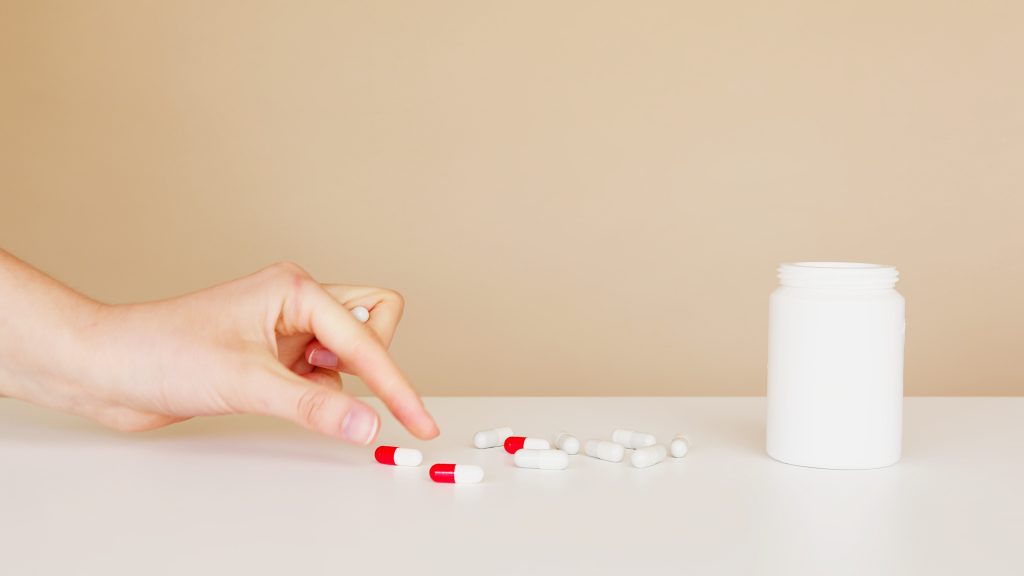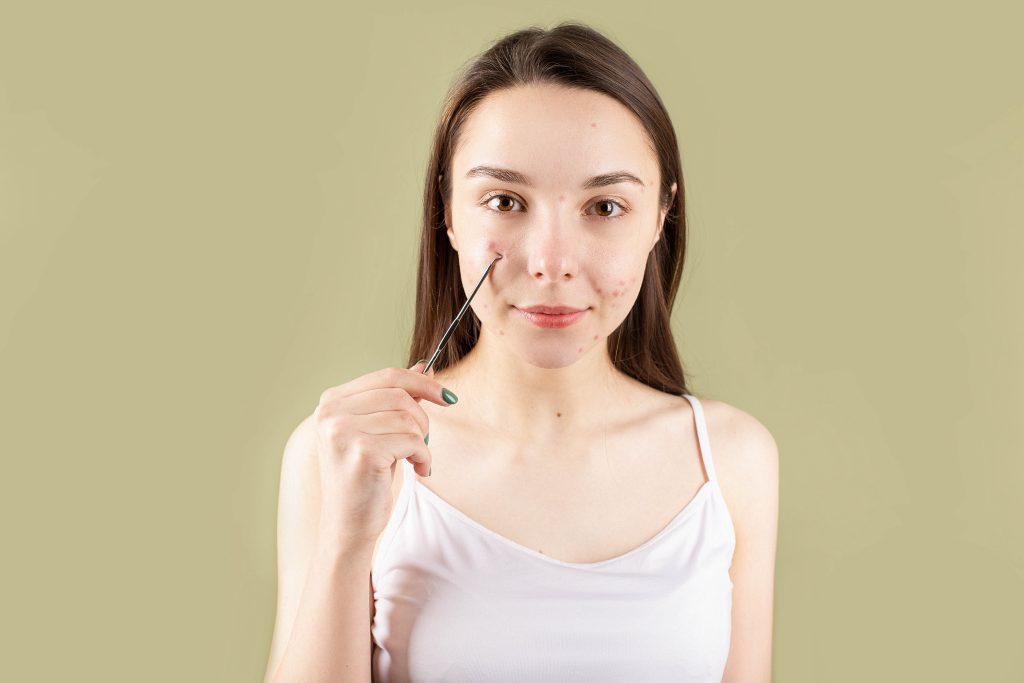Discover the potential side effects of common prescription acne treatments and learn how to navigate them effectively.
Potential Side Effects of Common Prescription Acne Treatments
Are you tired of pesky pimples ruining your confidence? Worried about the potential side effects of prescription acne treatments? Well, fear not, because in this article, we’ll dive deep into the world of acne and its causes, as well as the side effects of various common prescription treatments.

Understanding Acne and Its Causes
We’ve all had that dreadful moment when a pimple decides to make its grand entrance right before a big event. But what exactly is acne and why does it love to torment us so? Acne is a skin condition that occurs when your hair follicles get clogged with oil and dead skin cells. Thanks, biology!
Now, you might be wondering, what causes these unfortunate clogs? Well, there are various culprits, including hormones, genetics, and even certain medications. So, if you’re dealing with a face full of zits, it’s not always your fault! Blame it on the hormones or your great-great-granduncle Bob.
Let’s dive deeper into the fascinating world of acne and its causes. Hormones play a significant role in triggering acne breakouts. During puberty, the body experiences hormonal changes, particularly an increase in androgens. These hormones stimulate the sebaceous glands to produce more oil, leading to clogged pores and the formation of acne. So, if you’re a teenager battling with acne, know that it’s a natural part of your body’s development.
Genetics also play a crucial role in determining whether you’ll be blessed with clear skin or have to deal with persistent breakouts. If your parents or close relatives had acne, chances are you might inherit the same predisposition. Certain genes can influence the way your body produces and processes hormones, making you more prone to acne.
But it’s not just hormones and genetics that can be blamed for acne. Surprisingly, certain medications can also contribute to breakouts. Some medications, such as corticosteroids, lithium, and anticonvulsants, have been known to trigger acne flare-ups. If you’re taking any of these medications and notice an increase in acne, it’s essential to consult your doctor to explore alternative treatment options.
Additionally, lifestyle factors can exacerbate acne. Poor skincare habits, such as not cleansing your face regularly or using harsh products, can irritate the skin and worsen acne. Stress, a common culprit in many health issues, can also contribute to acne breakouts. When we’re stressed, our bodies produce more cortisol, a stress hormone that can increase oil production and inflammation in the skin, leading to acne.
In conclusion, acne is a complex skin condition influenced by a combination of factors, including hormones, genetics, medications, and lifestyle choices. Understanding these causes can help you take proactive steps in managing and treating acne effectively. Remember, you’re not alone in this battle against acne, and there are numerous treatment options available to help you achieve clearer, healthier skin.
Overview of Common Prescription Acne Treatments
When it comes to treating acne, there’s a multitude of options available to us. Let’s take a closer look at some of the common prescription treatments, shall we?
Topical Treatments
One popular choice for battling acne is using topical treatments. These come in the form of creams, gels, or lotions containing ingredients like benzoyl peroxide or tretinoin. These topical treatments work by targeting the root causes of acne, such as excess oil production or clogged pores.
When applied to the skin, these treatments penetrate deep into the pores, helping to unclog them and reduce inflammation. The active ingredients in these topical treatments have been scientifically proven to effectively kill acne-causing bacteria, leading to clearer skin.
While these treatments can work wonders in clearing up your skin, they do come with a few potential side effects. Some individuals may experience skin dryness, redness, or a slight burning sensation. These side effects are usually mild and temporary, and can often be minimized by using a moisturizer or adjusting the frequency of application.
But hey, a little discomfort is a small price to pay for the priceless gift of clear skin, right?
Oral Medications
For those whose acne refuses to budge with topical treatments alone, oral medications might be the next step. These medications are taken orally and work internally to combat acne.
One common type of oral medication used for acne treatment is antibiotics. Antibiotics can help fight acne-causing bacteria from within, reducing inflammation and preventing new breakouts. They are often prescribed for moderate to severe acne or when topical treatments have not been effective.
However, like all good things, oral medications too have their fair share of potential side effects. Some people may experience an upset stomach, dizziness, or even a change in skin color. These side effects are rare but should be monitored closely by a healthcare professional.
But hey, at least you’ll have a good excuse for looking a little green around the gills.
In addition to topical treatments and oral medications, there are other prescription acne treatments available. One such treatment is hormonal therapy, which is often used for women with hormonal acne. Hormonal therapy works by regulating the hormonal imbalances that contribute to acne breakouts.
Another option is isotretinoin, a powerful oral medication that is reserved for severe, cystic acne that has not responded to other treatments. Isotretinoin works by reducing oil production, shrinking the sebaceous glands, and preventing the formation of new acne lesions. However, it is important to note that isotretinoin can have serious side effects and requires close monitoring by a healthcare professional.
Lastly, there are also procedures like chemical peels and laser therapy that can be performed by dermatologists to treat acne. These procedures work by exfoliating the skin, reducing oil production, and promoting collagen production, resulting in improved skin texture and reduced acne scars.
With the wide range of prescription acne treatments available, it’s important to consult with a healthcare professional to determine the best course of action for your specific acne condition. They will consider factors such as the severity of your acne, your medical history, and any potential side effects to help you achieve clear and healthy skin.
Side Effects of Topical Acne Treatments
Now that we’ve acquainted ourselves with the world of acne treatments, let’s take a closer look at the potential side effects of some common options.

Retinoids and Retinoid-like Drugs
Ah, retinoids, the superheroes of the acne world. They work their magic by unclogging pores and speeding up cell turnover. But beware, young padawan, for they can cause some temporary skin irritation, dryness, and even peeling. It’s like a snake shedding its skin, but way less cool.
When using retinoids, it’s important to start with a low concentration and gradually increase it to allow your skin to adjust. Some individuals may experience redness, itching, or a burning sensation, but fear not, for these effects usually subside after a few weeks of consistent use. Remember, patience is key when it comes to achieving clear skin.
On the bright side, retinoids have additional benefits beyond acne treatment. They can help reduce the appearance of fine lines and wrinkles, fade dark spots, and improve overall skin texture. So, while they may have some side effects, the long-term results are worth it.
Antibiotics
While antibiotics are busy fighting off evil acne-causing bacteria, they can occasionally wreak havoc on your digestive system. Upset stomach, diarrhea, and nausea may be a small price to pay for clearer skin, but we won’t judge if you need a bathroom break every now and then.
It’s important to note that antibiotics should be used sparingly and only when necessary to avoid the development of antibiotic resistance. Your dermatologist will carefully consider the risks and benefits before prescribing them. Additionally, some individuals may experience allergic reactions to certain antibiotics, so it’s crucial to inform your healthcare provider of any known allergies.
Despite the potential side effects, antibiotics can be highly effective in treating severe acne or cases that haven’t responded well to other treatments. They work by reducing inflammation and killing bacteria, helping to clear up existing acne and prevent new breakouts.
Salicylic Acid and Azelaic Acid
Salicylic acid and azelaic acid work their magic by gently exfoliating your skin and reducing inflammation. However, in some cases, they can cause a bit of skin dryness, itching, or even mild stinging. Just remember, beauty is pain, or in this case, a slight tingling sensation.
When using products containing salicylic acid or azelaic acid, it’s important to follow the instructions carefully and avoid excessive use. Overuse can lead to increased dryness and irritation. If you experience any severe discomfort or persistent side effects, it’s best to consult with your dermatologist.
Despite these potential side effects, salicylic acid and azelaic acid are highly effective in treating acne. Salicylic acid helps unclog pores and remove dead skin cells, while azelaic acid reduces inflammation and kills acne-causing bacteria. Together, they make a powerful duo in the fight against acne.
It’s worth noting that everyone’s skin is unique, and what works for one person may not work for another. It may take some trial and error to find the right acne treatment that suits your skin type and addresses your specific concerns. Don’t be discouraged if you experience some side effects along the way, as they are often temporary and manageable.
Side Effects of Oral Acne Medications
Now, let’s delve into the potential side effects of some common oral acne medications. Brace yourself, intrepid reader!
Antibiotics
Just like their topical counterparts, oral antibiotics can cause some gastrointestinal distress. But hey, maybe it’s worth it to have a bit of an upset stomach if it means bidding farewell to those persistent pimples.
Combined Oral Contraceptives
Oral contraceptives can be a game-changer for those with hormonal acne, but they aren’t without their share of potential side effects. Some individuals may experience mood swings, breast tenderness, or changes in their menstrual cycle. But hey, you’ll have peace of mind knowing that your skin is on its way to becoming as smooth as silk.
Anti-androgen Agents
For those battling acne caused by excessive androgen hormones, anti-androgen agents can come to the rescue. However, they may bring along side effects such as irregular periods, weight gain, or even tenderness in the chest area. But hey, begone, hormonal imbalances!
Isotretinoin
Ah, isotretinoin, the last resort for many acne warriors. It’s a powerful medication that can work wonders for severe acne, but it’s not a decision to be taken lightly. Potential side effects include dry skin, nosebleeds, and even mood changes. But think of it this way – every dry patch on your face is a badge of honor, a sign that you’re on your way to clearer skin!
In conclusion, it’s important to remember that while prescription acne treatments can have potential side effects, they can also be life-changing for those struggling with stubborn breakouts. Always consult with a dermatologist to find the best treatment option for you, and embrace the journey to clearer skin, side effects and all!





